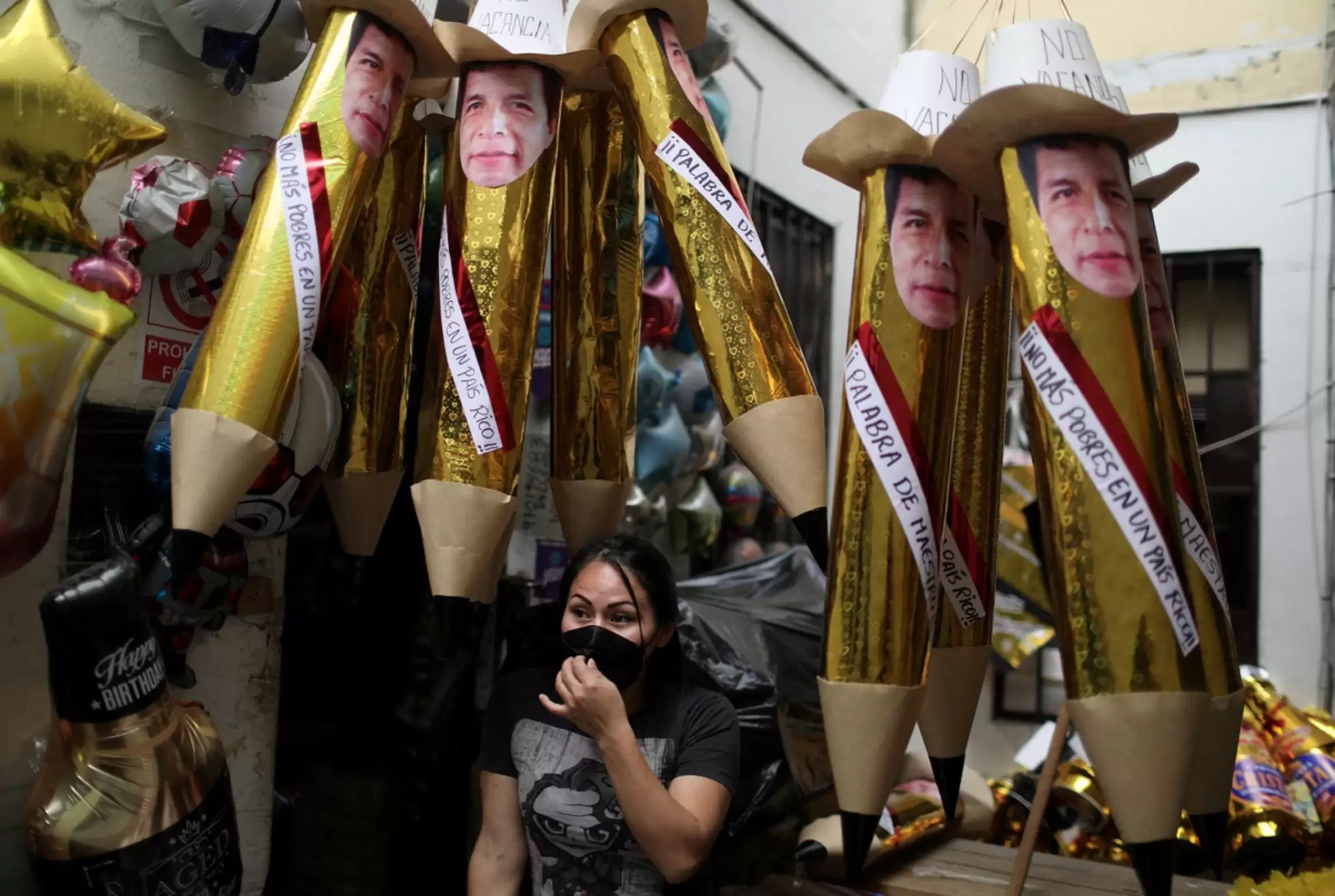Abroad, Peruvians have encountered strange reactions from Latin American or Spanish friends who do not hesitate to welcome what they recognize as a healthy institutional counterbalance of powers in Peru. With some surprise and even healthy envy, they appreciate the fact that the Judicial Power is prosecuting former presidents and politicians of different persuasions, something rather strange in their countries of origin. However, behind this apparent halo of democratic integrity hides a despicable reality: Peru, a victim of the worst pandemic consequences and an incessant international economic crisis, lacks a government structure capable of proposing any alternative to, at least, face the serious social situation it is going through.
Almost thirteen months after the beginning of Pedro Castillo’s government, it is desperate to see the time and resources wasted during this period. Simultaneously, and as if on purpose, the administration has worked unceasingly to squelch the incipient democratic traditions that had been installed in Peru in the 21st century. For example, this government has unusually appointed ministers and high-level officials who had no parchment to support such appointments; on the contrary, several of these individuals had criminal and even terrorist and subversive records. As was to be expected, these unnamed ministers sought to fill their respective offices with people ineligible for such responsibilities.
In some cases, several of them have left office with degrading and crude allegations of corruption that the Public Prosecutor’s Office is now pursuing. As if that were not enough, there are Kafkaesque cases such as that of the former Minister of Transportation and Communications, Juan Silva, who allegedly pocketed US$100,000 from an infrastructure project, with part of which his partner paid off a debt in a local bank. In other words, the dissonance that morally endorses awarding public money to meet financial obligations and keeping a good record as a debtor is truly mind-boggling.
As is to be expected, the logic of the clan, which has clearly been lived for decades in Peru’s regional politics, has reached the highest levels of management in this government. Currently, Pedro Castillo has five open investigations (something unusual for a sitting president). Among them, the accusation of influence peddling and even of heading a criminal organization, in which his wife, Lilia Paredes, and his sister-in-law (whom he calls daughter) Yenifer Paredes are allegedly involved.
The situation of the presidential entourage is so delicate that the Attorney General’s Office has requested 36 months of impediment to leave the country for the first lady and, at the same time, preventive imprisonment for the sister-in-law. Nephews and other people close to the president, such as mayors and local officials from Cajamarca, Castillo’s homeland, are allegedly involved in the scheme. All of them would have participated as managers of illegal contracts and recipients of money from these agreements.
In view of this, Castillo has not hesitated to spread conspiracies against him and to blame the press for stirring up the population to undertake a “coup d’état”. It is worth mentioning that Congress tried twice to remove the president from office, but without success. Fortunately for the president, his political counterweight has been characterized by deficient political management of the vacancy and even by several media blunders that have undermined his credibility in the eyes of public opinion. After the vacancy of Martin Vizcarra, it was expected that the Legislative Power would learn lessons on the management of a delicate measure such as the presidential vacancy. Unfortunately, they have made similar mistakes to those that generated the generalized repudiation of the population between November 10 and 15, 2020.
As icing on the cake, a few days ago Antauro Humala, former major of the Army and brother of former President Ollanta Humala, was released. Antauro was convicted, among other charges, of kidnapping and murder of four policemen in a rebel uprising that occurred on January 1, 2005, in Andahuaylas, a city located in the southern Peruvian Andes. Humala, the promoter of a fractious ideology he calls the “Ethnocacerism” movement, proclaims the superiority of the “copper” (Andean) race and promises to apply absurd penalties such as the death penalty to the LGBT population or for “treason to the fatherland”, which, he said, he would implement even against his own brother Ollanta.
Through a questionable interpretation of the National Penitentiary Institute (INPE), Humala was released for “good behavior” after having studied or worked more than 3,000 days in prison, which reduced his sentence by almost two years. In his first public act, the ex-treasurer said he was proud of the Andahuaylas episode, and without any regrets for what happened.
Perhaps coincidentally, during Castillo’s administration, two of the most controversial prisoners in recent Peruvian history have been released from prison: Alberto Fujimori and Antauro Humala. In the meantime, it is worrisome the level of tolerance that the population has acquired in the face of the carelessness with which the country has been run. Perhaps this is also the worst damage that this government has inflicted on Peruvian society: normalizing mediocrity and the vocation for crime as a natural way of governing and managing in Peru. What is unacceptable has today become tolerable.
We Peruvians are witnessing the conversion of the country into a giant Gotham City, where crooks and petty thieves triumph, with a few bureaucrats around who seek to sow chaos. Unlike in fiction, the population does not have and cannot wait for vigilantes. Otherwise, it will be swallowed up by total indifference and resignation to having a country governed by its worst people.
Translated from Spanish by Janaína Ruviaro da Silva
Autor
Economista. Profesor adjunto en el Instituto de Empresa de Madrid. Fue consultor en Práctica Global de Educación del Banco Mundial. Máster en Administración Pública por la Universidad de Princeton.












